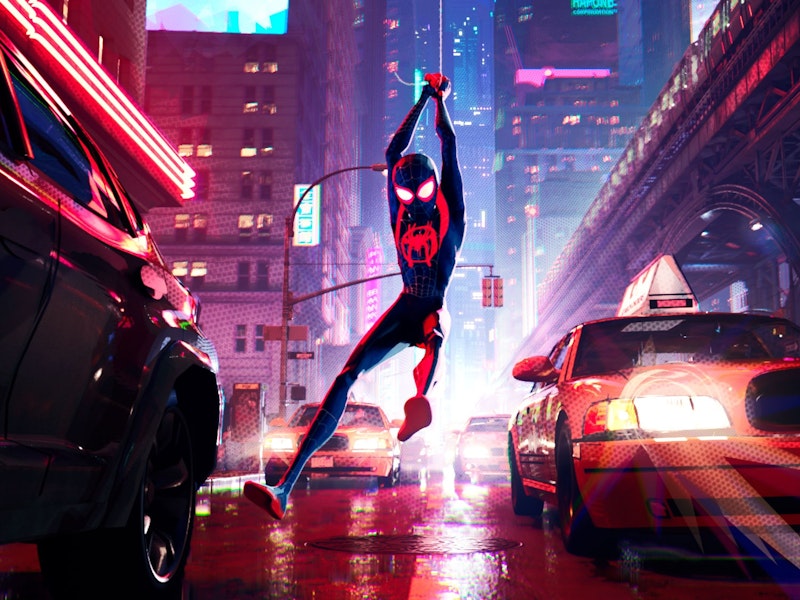Spider-Man: Into the Spider-verse was a major surprise when it arrived back at the end of 2018. The film, directed by the trio of Bob Persichetti, Peter Ramsey, and Rodney Rothman, was the most dazzling animated movie of the decade, a massive hit, and the Oscar winner that year for Best Animated Feature. And it found new things to say about the oft-depicted Spider-Man character, especially in his incarnation as Brooklyn teenager Miles Morales.
Now there’s a sequel, T, which builds upon on the first film’s themes. These include the existence of multiverses, as well as the very progressive idea that, rather than a mere chosen superhero, anybody can be Spider-Man. The animation is once again amazing, pulling together a wide variety of styles and traditions, and incorporating some brilliant ideas. But from a storytelling standpoint, the new film leaves a lot to be desired.
Directed by the trio of Joaquim Dos Santos, Kemp Powers, and Justin K. Thompson, and written by the celebrated LEGO Movie tandem of Phil Lord and Christopher Miller (along with David Callaham), Across the Spider-verse takes things much further than the first film, with more characters and more universes. Into the Spider-verse concerned a small group of Spider-Men from different universes who teamed up together—including a female, a past version of Peter Parker, and even a pig—along with young hero Miles Morales (Shameik Moore).
In this version, there are many more Spider-Men and other Spider-People, as we learn all about a universe of them, including a bureaucracy called the Spider-Society. They’re all going up against a unique villain called The Spot (voiced by Jason Schwartzman), who has the power to open inter-dimensional portals. Hailee Steinfeld voices the frequently doomed character of Gwen Stacy, who in her own universe is Spider-Woman.
We learn there are certain things that must happen in every Spider-Man story, and disrupting them can have terrible consequences. It leads up to the familiar choice of Miles having to weigh his family and his Spider-Man duties. The film presents a gorgeous-looking version of New York City, and even more unique depictions of different universes, especially one that resembles a hybrid of Manhattan and Mumbai. Possibly the film’s best idea is Spider-Punk, voiced by Daniel Kaluuya, whose appearances are illustrated with Sex Pistols-style iconography.
That’s all excellent. But I was struck by how convoluted the multiverse storytelling is. It’s an overused trope in recent superhero movies, including some of the lackluster recent MCU films and TV shows, and multiverse material has been all over the recent live-action Spider-Man movies as well.
When done well it can be great—especially in Everything Everywhere All at Once, as well as 2021’s Spider-Man: No Way Home. But I’m sick of multiverses, especially the way the existence of different universes diminishes the stakes. On top of that, Spider-Man: Across the Spider-Verse runs for two hours and 20 minutes. And it ends abruptly, teasing a third film in the series that is set to arrive in the spring of 2024. Across the Spider-verse is still the second-best of the four Spider-man 2s, behind only Sam Raimi's 2004 Spider-Man 2, but well ahead of The Amazing Spider-Man 2 and Spider-Man: Far From Home.

